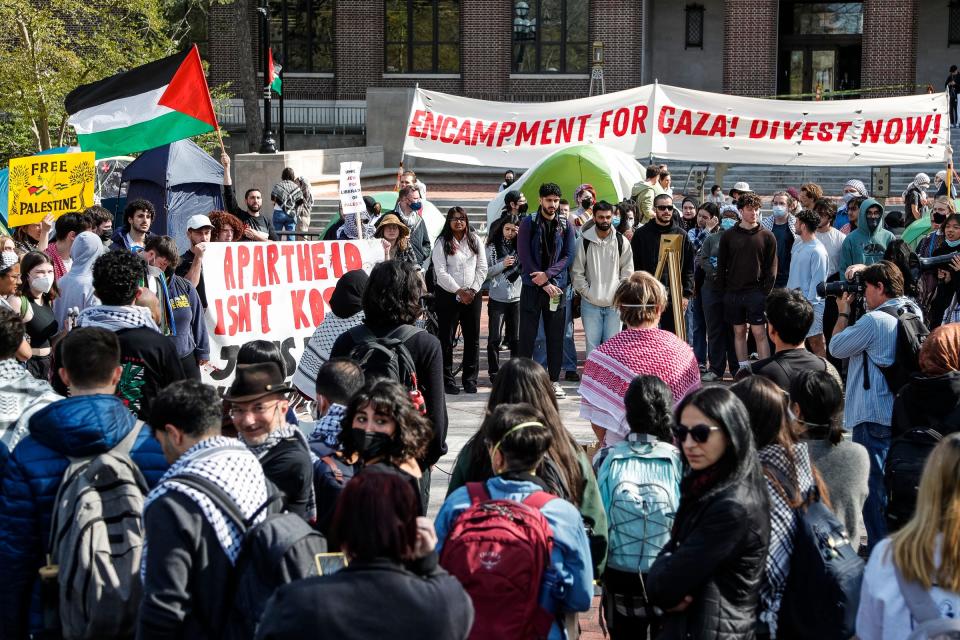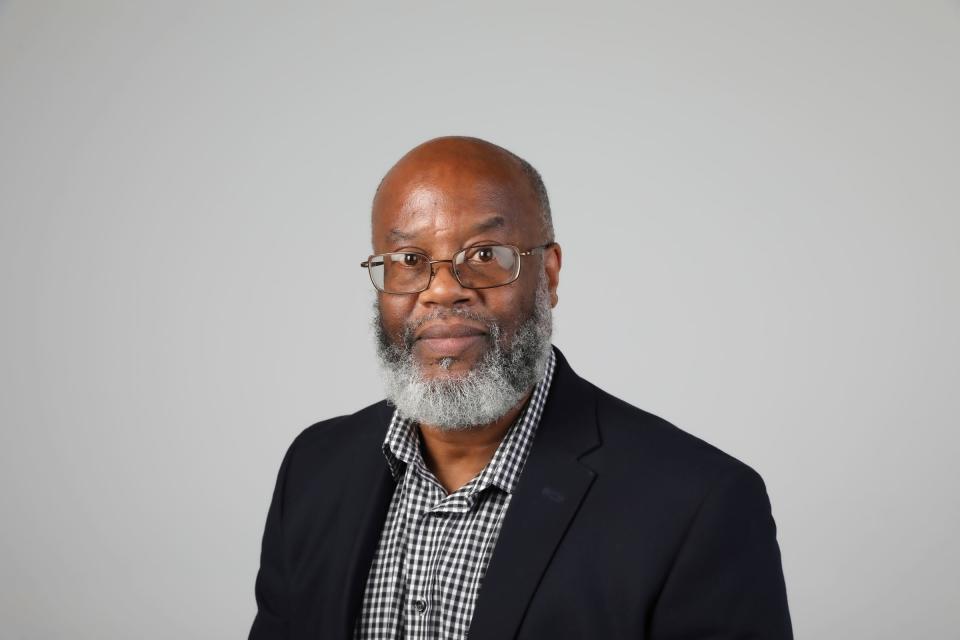Protests at U-M, college campuses, aren't supposed to be polite | Opinion
Protests aren’t meant to be polite.
We should keep that in mind, when reflecting on the behavior of thousands of college students across the country who erected tent cities, took over campus buildings, got in people’s faces and generally made themselves hard to ignore while expressing outrage over continued military support provided to the Israeli government by our own government, despite a reported mounting death toll of nearly 35,000 Palestinians, far too many of whom have been children.
No one in their right mind could possibly condone the grotesque killings of more than 1,200 Israelis on Oct. 7 of last year that sparked the war in Gaza, but what young people had been saying even for weeks and months prior to the protests is that the Israeli's government's military response has become grossly disproportionate. To the point where students felt they had to visibly and forcefully express strenuous opposition to President Joe Biden’s unwillingness or inability to successfully pressure Israel to halt the killing.
Some colleges and universities made the decision to cancel classes or commencements out of concern that events could get too heated and out of control. At the University of Michigan, students also participated in mass protests and rallies, and the university still managed to conduct its commencement ceremony May 4 despite several attempts to disrupt those proceedings.

However, the disruptions at U-M were relatively minor, possibly because school was ending and the lengthy protest movement was winding down. Despite whatever lingering bitter sentiments may remain, students were returning home, and there was no more nucleus to hold the storm together. The unsettling presence of armed police may have had something to do with that as well.
But let’s not wave goodbye just yet to Student Protest 2024, because these students have most certainly been forever changed and refocused — and they have the shared experience of how their protests have been reacted to, and oftentimes misrepresented, by disapproving others who viewed their activities as childish and irresponsible.
We need to return to that word, "disrupt." Because that's a word that much more accurately reflects the true meaning of what a protest is supposed to be about. Consider this: If you were ever part of a protest where everyone within range of of it felt comfortable throughout, smiling and nodding their heads approvingly until the event faded and everyone calmly returned to their days as if nothing happened, you weren’t protesting. You may have been loitering. But for sure you were not protesting.
Why are Michigan's Black leaders backing longshot Senate candidate?
The point being this: Protests are meant to cause discomfort to those with the power to effect change, sometimes massively so, depending on the level of discomfort that gave rise to the protest in the first place.
But the point is most definitely not to give comfort to antisemitism in any shape or form. Giving solace to antisemitic views and actions is not an act of civil disobedience or political protest but a grotesque display of moral illness. You need to know the difference, and you must never get the two confused. Because one seeks to light up the darkness, while the other can only exist in the darkness.
During the height of the civil rights movement during the ‘50s and ‘60s (I contend that movement never really ended, and is still going on), whether it was the nonviolent tactics employed by Dr. Martin Luther King or the more aggressive will-never-turn-that-other-cheek approach of Malcolm X or the Black Panthers, the protests were never warmly embraced by the community. Not even the whole the Black community was supportive of the tactics used to gain freedom in America, and some actively opposed making any noise out of fear of the repercussions. The late Georgia Congressman John Lewis was beaten to within an inch of his life by the police during the Bloody Sunday march he led across the Edmund Pettus Bridge in Selma, Alabama, on March 7, 1965.
Hollier may struggle with 13th District ballot due to petition signature issue
And that was a lawful protest, meant to be nonviolent. Those four young Black freshmen from North Carolina Agricultural and Technical College who decided to protest against racial segregation in 1960 by demanding to be served at lunch at an F.W. Woolworth lunch counter were quite willfully breaking a law that said segregation was legal and could be enforced. The same applied to the 25 students who joined them the next day. And the 63 who joined them on the third day. And of course the three female white students who joined them on that fourth day, followed by the more than 300 protesters who showed up the day after that.
Sometimes you have to disrupt the natural — or unnatural — order of things to achieve the sort of change that needs to happen in society.
Or we might even consider the American Revolution. Talk about a protest, right? Patrick Henry famously declared “Give me liberty or give me death!” on March 23, 1775 in a speech delivered before the Virginia Assembly, which became the rallying cry of that revolution.
But the point is not that protests always win, or even that protests are always done for the right causes. The point is to understand that true protest movements are never, ever polite. Imagine if someone stabbed you in the stomach. Chances are you would scream out in pain, and very possibly strike out at whoever stabbed you.
Think of protest like that.

Free Press contributing columnist Keith A. Owens is a local writer and co-founder of Detroit Stories Quarterly and the We Are Speaking Substack newsletter and podcast. Submit a letter to the editor at freep.com/letters, and we may publish it online and in print.
This article originally appeared on Detroit Free Press: U-M protests over Gaza are meant to make us uncomfortable. They should

